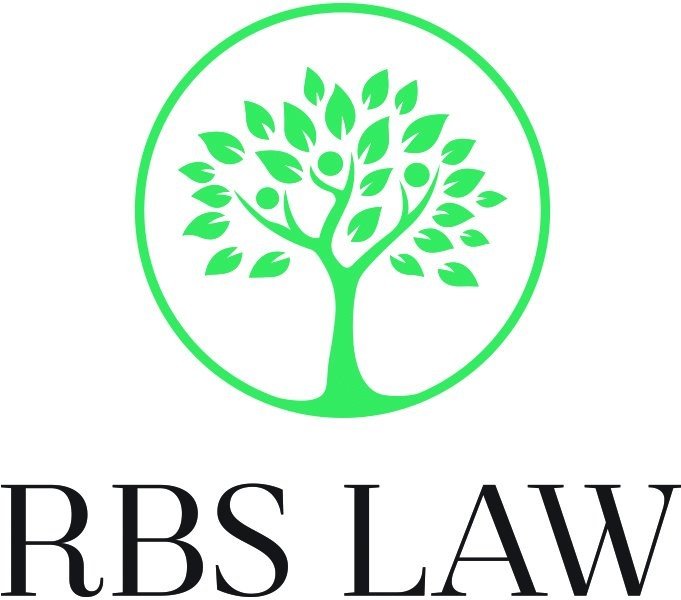Estate Planning for Single Parents
/At its core, estate planning for single parents isn't merely about wealth distribution or tax saving - it's about charting a roadmap for the future well-being of those dearest to us. For every individual, this is an essential exercise, balancing both emotional and financial complexities. But when we spotlight single parents in this context, the narrative takes on heightened urgency.
Single parents, often functioning as both the primary caregiver and primary breadwinner, are tasked with a dual responsibility. Their role is to ensure emotional nurturance while also providing financial stability. In traditional family structures, there's an unspoken reliance on a second parent—a safety net of sorts, both emotionally and financially. However, for single parents, that safety net isn't inherently present. The onus is entirely on the single parent to not only create the safety netbut to reinforce it with legal precision.
Unforeseen circumstances are an inevitability of life. Whether it's sudden illness, incapacitation, or the unsettling thought of untimely demise, life's unpredictability only underscores the necessity of meticulous estate planning for single parents. It's not just about ensuring resources for their child's present but also about sculpting a secure pathway for their future, where the child’s upbringing, education, values, and overall well-being are protected and nurtured, even in the parent's absence.
Here are the considerations single parents with minor children in Colorado should keep in mind when it comes to estate planning.
Guardianship
Choosing a guardian for your child is more than a mere checkbox on your estate planning list - it's a profound reflection of your foresight, love, and commitment to your child's well-being. It's a decision rooted in trust, projecting who you believe will emulate or even compliment the care, love, and guidance you provide. This choice becomes the framework for your child's upbringing in the unforeseen event of your absence, influencing their environment, values, and overall life trajectory.
When choosing, consider:
The prospective guardian's values, parenting style, age, health, and financial situation.
The bond between the child and the prospective guardian.
If siblings are involved, decide whether you’d like to try to keep them together.
Consider the Ex-Spouse or Other Parent: Even if one parent has full custody, the other biological parent might still have legal rights. It's essential to understand how this impacts decisions around guardianship.
Appointment of Conservator: it may be necessary to identify a different individual or institution to manage your child’s inheritence until your child reaches an age you believe appropriate for direct access.
Letter of Intent: Though not legally binding, this personal letter provides guidance to guardians or caregivers about your child’s routines, needs, and preferences. It adds a personal touch, offering context and clarity.
Trusts
Inheritance, while a significant means of ensuring your child's financial future, comes with its own complexities, especially when dealing with minors. Outright inheritance may unintentionally expose your child to financial risks, due to age, lack of financial literacy, or potential external pressures. A trust can act as a protective shield, meticulously designed to oversee the controlled distribution of assets, ensuring the assets serve their intended purpose of providing for your child's welfare and future. Options to consider:
A revocable living trust, which can be altered during your lifetime but becomes irrevocable upon death.
A testamentary trust, set up via your will, which only goes into effect after your death.
Life Insurance
Life insurance is a promise that a child’s financial needs will be met, even in the absence of a parent. Life insurance stands as a robust pillar in the foundation of estate planning for single parents, offering both peace of mind and tangible support. Here’s what to think about when it comes to life insurance:
Single parents should consider a policy that covers not just debts but also future expenses like education and everyday expenses.
Choose a policy that can be structured to pay out in increments or fund a trust for additional flexibility.
Retirement Benefits and Account Beneficiaries
Retirement accounts, such as IRAs and 401(k)s, are more than just nest eggs - they serve as critical components of a broader estate plan, especially for single parents. These financial instruments have the potential to significantly impact a child's future, ensuring they are provided for even after a parent is gone. However, managing these assets requires careful consideration and attention to ensure:
Beneficiary designations are up-to-date. Single parents who previously named a spouse or partner will need to make updates to reflect their current status and wishes.
Children are not directly named as beneficiaries (due to age restrictions and tax considerations). Name your trust or estate instead.
Health Care Power of Attorney and Financial Power of Attorney
The prospect of incapacitation, however grim, is a reality that warrants consideration. For a single parent, the ramifications of being unable to communicate your wishes can create chaos, not just in terms of health decisions but also in managing finances and your child’s needs. While we often prioritize immediate needs and the day-to-day well-being of our children, it's equally vital to foresee scenarios where our direct input might be unavailable. Establishing clear directives, both for medical and financial decisions, provides a layer of assurance. These tools ensure that, even in our absence, our children's well-being and our assets remain safeguarded. Here’s what needs to be established:
A Health Care Power of Attorney, appointing someone to make medical decisions on your behalf.
A Durable Power of Attorney for financial decisions, ensuring bills, mortgages, and other expenses are managed.
Wrapping Up Estate Planning for Single Parents
Estate planning for single parents isn't just legal processes and paperwork - it’s a parental responsibility, ensuring that even in our absence, our child's world remains as intact and nurtured as we would have wished. It serves as both a compass and cushion, directing the future and buffering against life's unpredictable turns. By meticulously shaping this future, single parents can get peace of mind that their child’s needs and well-being are considered should something happen to you. As we conclude this guide, let's remember that estate planning is less about property and more about propelling our children forward with the best of our intentions, even when we can't be there physically.
As a reminder, if you need help with estate planning for children, please reach out to us at RBS Law - we’d love to help you secure your legacy by protecting your child’s future.


